Dmitry Chernyshenko: ‘We are rebuilding the centre to implement import substitution tasks’
Russia's Deputy Prime Minister has identified Innopolis as the reference centre for software import substitution
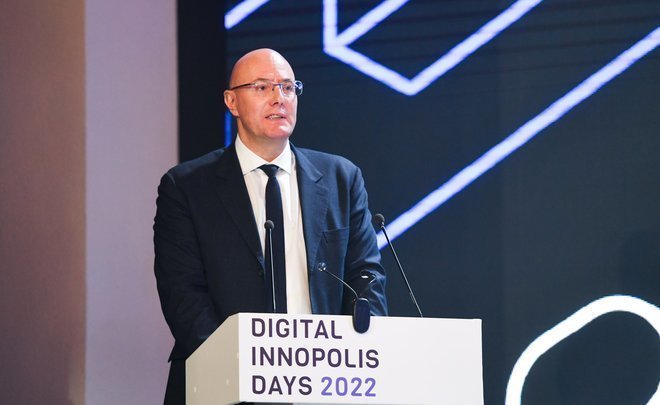
For effective import substitution, Russia needs highly qualified personnel with digital skills, Russian Deputy Prime Minister Dmitry Chernyshenko said at the plenary session of the digital transformation forum Digital Innopolis Days 2022. According to him, 216 projects have already been approved, 200 thousand new specialists will be needed to work on them. Maksim Parshin, Deputy Minister of Digital Development, Communications and Mass Communications of the Russian Federation, also identified a common problem for the entire IT industry. “In private conversations, I ask successful IT specialists: what is missing? They often say that the personnel problem is important, many say it is the most important, and only the most advanced call it the only one.” Read the details in the material of Realnoe Vremya.
Digital Innopolis Days with Chernyshenko
Dmitry Chernyshenko, the Deputy Prime Minister of Russia, arrived in Kazan on 25 November. Together with Tatarstan President Rustam Minnikhanov, he took part in the digital transformation forum in education, business and public administration Digital Innopolis Days 2022 (DID 2022), organised by Innopolis University. The day before, he had already spoken at the Moscow conference on artificial Intelligence and machine learning Artificial Intelligence Journey 2022, but he could not miss the meeting in Kazan either. Firstly, the Deputy Prime Minister is the Chairman of the Supervisory Board of Innopolis University, and secondly, 10 years have already passed since the formation of the new university.
Before the beginning of the plenary session, Dmitry Chernyshenko and Rustam Minnikhanov visited the exhibition exposition of the forum. They studied the stands of the Research Centre For Artificial Intelligence of Innopolis University, industry working groups synchronised in the directions of the ICC and the CCR, as well as ICL Techno.
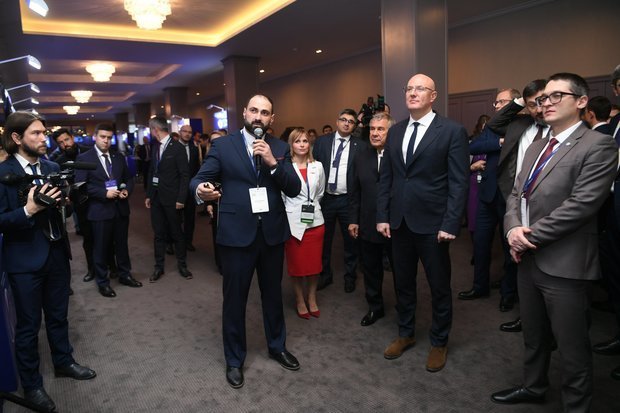
Later, the new Deputy Minister of Science and Higher Education of the Russian Federation, Daria Kiryanova, appointed a month ago, Deputy Minister of Digital Development, Communications and Mass Communications of the Russian Federation Maksim Parshin, Deputy Minister of Energy of the Russian Federation Eduard Sheremettsev spoke from the podium. Business representatives also met the tight deadline — the CEO of SIBUR Digital, Alisa Melnikova, the Deputy Director General of Russian Railways, Evgeny Charkin, and the rector of Gazprom Neft Corporate University, Ilya Dementyev. Everyone's speeches were, in fact, reduced to a long-standing problem — how to get personnel with digital skills.
“Universities grumbled about two points”
Deputy Prime Minister Dmitry Chernyshenko reported on the first results of retraining specialists in higher education. He recalled that a year ago the Russian government set three tasks. Firstly, to update federal educational standards in higher education institutions, secondly, to begin mass retraining of teachers, and thirdly, to introduce a new position in the leadership of the university — the head of digital transformation.
“If the administrative decision can be executed, then as for the other two points — they grumbled about how realistic it is to do it," said Chernyshenko.
According to him, “digital special forces” swept through universities. According to Chernyshenko, 791 universities of the country have introduced new educational standards, more than 33 thousand teachers have been retrained in Innopolis.
The Deputy Prime Minister believes that all this was done on time and turned out to be very useful, because in 1,5 years they faced such new challenges, “which they were afraid to think about”. According to him, more than 1,000 companies were sanctioned, they were restricted access to Western technologies, “which they were hooked on," “dragged into colonial dependence," he was indignant. Now our own scientific and technological development is coming to the fore.
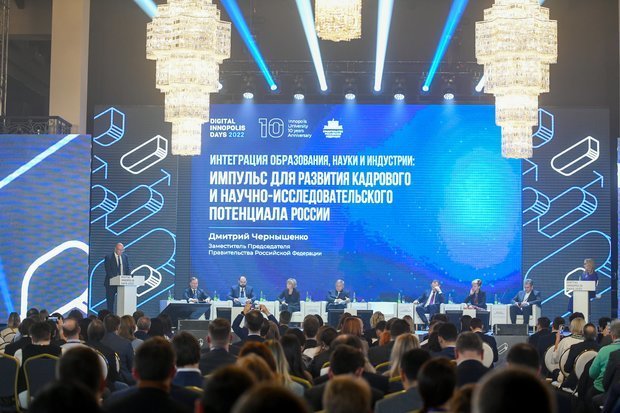
Engineering schools and “digital” departments: where the elite are trained
One of the ways to solve the problem is the project of creating 30 advanced schools. Their main goal is to train the engineering elite to ensure the technological sovereignty of the country. What is it? This is the country's capacity to replace and maintain the autonomy of its technologies, regardless of changing conditions in the world, the speaker noted.
Another new direction is the Priority 2030 programme, which involves the creation of digital departments in universities. “Last September, 121 universities were selected. Most of them are regional universities, 61%," Chernyshenko said. Now, according to him, 112 thousand students have enrolled here and over 90 thousand have received an expert assessment in Innopolis. In fact, students receive a “second” digital specialty along with a basic profession.
“In December, we sum up the results of the implementation of the programme by universities and we will make a decision on further support of these universities," said Chernyshenko.
Forty-three centres will be engaged in import substitution in the field of software, the Deputy Prime Minister said. According to him, the work is underway in the field of consolidation of customers of scientific projects. The centres have united more than 300 companies that should replace all foreign industrial software.
“The government commission approved 216 projects, the development of which will require more than 200 thousand new specialists," said Chernyshenko.
At the same time, he warned that the timing of the transition to Russian software is “short”, and “the quality of solutions should be higher, and not just copied and repeated”. The solution of this task is assigned to the support and educational centre, which operates on the basis of Innopolis University.
“Now we are 'rebuilding' the centre to implement import substitution tasks. The primary task will be the training of employees on the ground — for the smooth transition of industries from foreign software to Russian. Educational programmes will be updated, tools for assessing the competence of employees and the matrix of their professional development will be created," Dmitry Chernyshenko said.
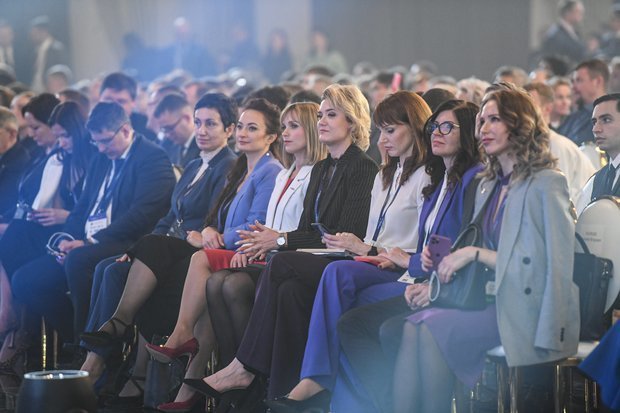
Physicists and chemists are needed, IT specialists are multiplying themselves
The new Deputy Minister of Education, Daria Kiryanova, shared her impressions of the exhibition. In her opinion, industry cannot find a common language with science.
“Going around the stands, we met power engineers. They said they could not formulate a scientific organisation, or a scientific organisation could not tell the business in an accessible language what they develop. I have a hypothesis that this is the language that can help us meet — it's digit. The domain 'Science and Innovation' is the place where it is possible," she believes.
Deputy Minister of Digital Development, Communications and Mass Communications of the Russian Federation Maksim Parshin talked about the outflow and shortage of personnel in the IT industry. According to him, an unprecedented preferential regime has been created in the country, the state itself invests a lot of effort.
“In private conversations, I ask successful IT specialists: what is missing? They often say that the personnel problem is important, many say it is the most important, and only the most advanced call it the only one," he shared.
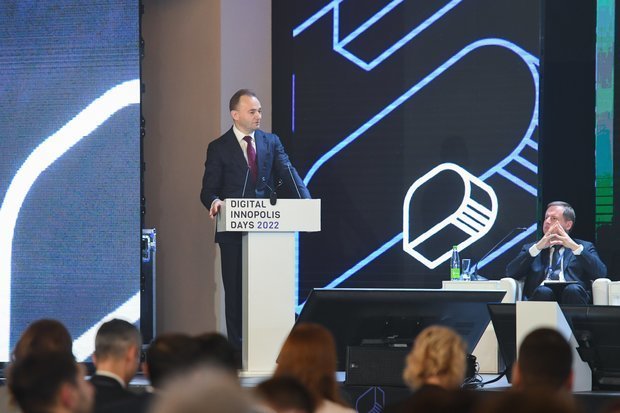
Meanwhile, industrialists insisted that they needed physicists and chemists, and “IT specialists are multiplying themselves.”
“It is frightening that the number of graduates successfully passing physics and specialised mathematics is decreasing," Alisa Melnikova, CEO of SIBUR Digital PLC, expressed concern. “We have several areas of development of engineering and digital skills: the special centre with the latest technologies and industrial digital VR simulators, where we train production specialists, engineering and technical workers from welders to drone operators. And we have the centre of expertise on digital skills. But when Innopolis University and we started a project on modelling the technological processes of creating new materials, science was needed, which was not there.”